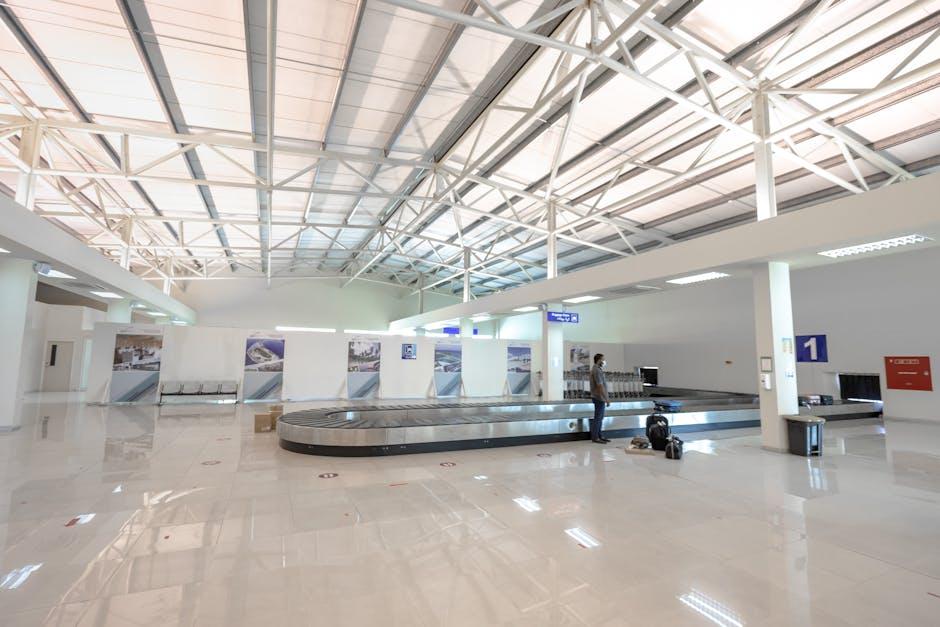In today’s unpredictable world, where unforeseen events can disrupt even the most meticulously planned journeys, travel insurance has emerged as an essential safeguard for travelers. Whether due to sudden illness, adverse weather conditions, or unexpected political unrest, trip interruptions can lead to significant financial losses and emotional distress. This article explores the crucial role that travel insurance plays in mitigating the risks associated with such interruptions, ensuring peace of mind and financial protection for globetrotters. By understanding the various coverage options and benefits, travelers can make informed decisions to secure their adventures against the uncertainties of travel. Join us as we delve into the intricacies of travel insurance and discover how it can be your steadfast ally in navigating the complexities of travel interruptions.
Understanding Travel Insurance Coverage for Trip Interruptions
When unforeseen events derail your travel plans, travel insurance coverage for trip interruptions can serve as a vital safety net. This type of coverage typically reimburses you for pre-paid, non-refundable expenses if your trip is cut short due to specific covered reasons. These may include unforeseen illness or injury, severe weather conditions, or even a natural disaster at your destination. It’s crucial to carefully review your policy to understand what circumstances are covered and any applicable exclusions. A comprehensive policy ensures you are not left shouldering the financial burden of unused travel expenses.
- Medical Emergencies: If you or a travel companion fall ill or are injured, your policy might cover the costs associated with returning home early.
- Weather Disruptions: Inclement weather can lead to cancelled flights or unsafe conditions at your destination, triggering your trip interruption coverage.
- Natural Disasters: Events like earthquakes or hurricanes may necessitate an abrupt change in plans, with your policy providing financial relief.
- Personal Circumstances: Some policies also cover interruptions due to personal situations, such as jury duty or military deployment.
By investing in travel insurance, you ensure that you’re not just financially protected but also provided with peace of mind, allowing you to focus on the journey rather than the unexpected disruptions that may arise.
Essential Features to Look for in a Travel Insurance Policy
- Comprehensive Coverage: Ensure your travel insurance includes coverage for trip cancellations, delays, and interruptions. This means that if unforeseen events like a sudden illness or a natural disaster disrupt your plans, you can recover your non-refundable expenses.
- Medical Emergencies: Look for policies that offer robust medical coverage, especially if you’re traveling to a country with high healthcare costs. This should include emergency medical evacuation and treatment, ensuring you receive the care you need without incurring massive expenses.
- Lost or Delayed Baggage: Policies should cover the loss, theft, or delay of your luggage. This feature can be a lifesaver when you’re left without your essentials in a foreign country.
- Travel Assistance Services: Opt for a policy that offers 24/7 assistance. Having a dedicated helpline can be invaluable for navigating emergencies, finding local medical services, or arranging transportation in a crisis.
- Adventure Sports Coverage: If you’re planning to engage in activities like skiing, scuba diving, or hiking, ensure your policy includes coverage for these adventures. Standard policies often exclude high-risk activities, so this is crucial for thrill-seekers.
By selecting a travel insurance policy with these essential features, you’ll safeguard your journey against the unpredictable, ensuring peace of mind as you explore the world. Always read the fine print and understand what is included and excluded to tailor the policy to your specific travel needs.

How to File a Claim for Trip Interruption Successfully
To ensure a successful claim process, it is crucial to understand the specific steps and documentation required by your travel insurance provider. Start by reviewing your policy to confirm that your situation qualifies as a trip interruption. This often includes events such as illness, severe weather, or unforeseen emergencies. Once confirmed, gather all necessary documents, which may include:
- Receipts for any additional expenses incurred due to the interruption, such as accommodation or transportation.
- Official reports or documentation related to the cause of the interruption, such as a medical certificate or weather report.
- Original travel itinerary and any updated plans or changes.
After compiling the required documents, contact your insurance provider promptly to initiate the claim. Many insurers have a specific time frame within which you must report an incident, so timeliness is critical. Provide a clear and detailed account of the events leading to the interruption, supported by your gathered documentation. This thorough preparation and proactive approach will significantly enhance the likelihood of a favorable outcome for your claim.

Expert Tips for Choosing the Right Travel Insurance Plan
When selecting a travel insurance plan, it’s crucial to consider the various aspects that can affect your trip, ensuring you are covered for any unexpected interruptions. Assess your travel itinerary and identify potential risks, such as weather-related delays or political unrest in your destination. A comprehensive plan should offer coverage for these eventualities, providing peace of mind and financial protection.
- Coverage Scope: Look for plans that include trip cancellation, interruption, and delay coverage. This ensures you are compensated for non-refundable expenses if your travel plans are disrupted.
- Medical Emergencies: Ensure the policy covers medical emergencies, as these can be particularly costly abroad. Some plans offer emergency medical evacuation, which is essential for remote destinations.
- Policy Exclusions: Carefully review the policy exclusions. Some plans may not cover pre-existing conditions or specific activities like extreme sports.
- Customer Support: Opt for insurers with 24/7 customer support, as issues can arise at any time and immediate assistance is often necessary.
Price should not be the only factor when choosing a travel insurance plan. A cheaper policy may save you money upfront but could leave you vulnerable to significant losses if it lacks essential coverage. Consider your personal needs and travel plans to select a policy that provides the right balance of coverage and cost.

